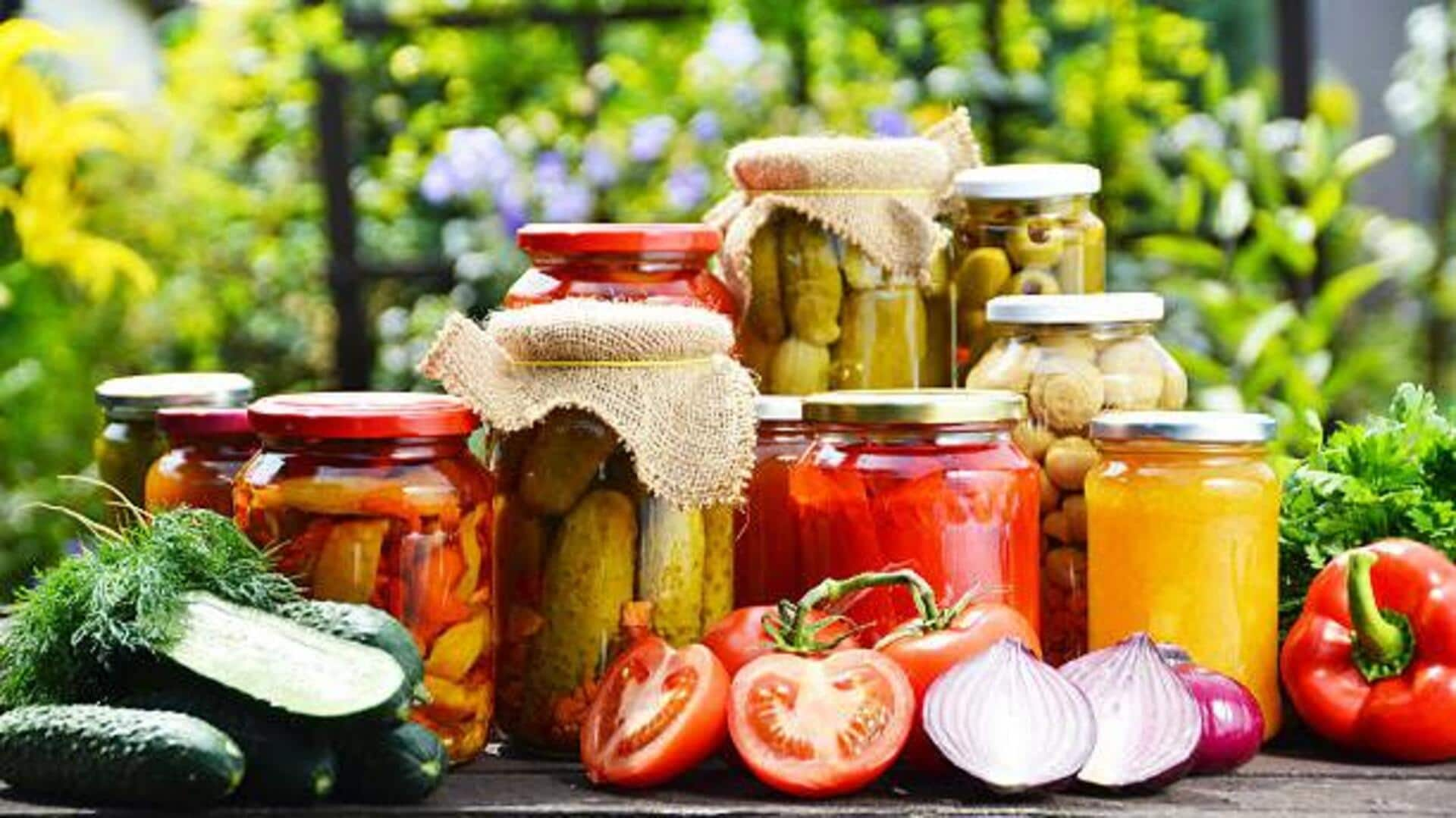
How to make your food last longer
What's the story
Africa is a colorful continent with a plethora of cultures and traditions, many of which have some unique food preservation techniques. Not only do these tricks prolong food's shelf life, but they are also cost-effective for households. By using natural resources and traditional know-how, these preservation tricks help you avoid waste and save money. Here are some surprising yet effective food preservation tricks from across Africa that can be both practical and economical.
Sun drying
Sun drying techniques
Sun drying is a popular technique throughout Africa to preserve fruits, vegetables, and grains. By utilizing the power of the sun, this method extracts moisture from food items, preventing them from spoiling. It needs very little equipment—often just a clean surface/rack—and no electricity, making it affordable for many households. It may take days, depending on the climate, but preserves foods for months.
Fermentation
Fermentation practices
Fermentation is another old-school method of preserving foods such as vegetables and dairy. It uses naturally occurring bacteria to convert sugars into acids or alcohols, which serve as preservatives. Fermented foods are not just long-lasting but are also healthy due to the presence of probiotics. In many African communities, fermentation is a communal activity, which improves nutrition as well as relationships.
Smoking
Smoking methods
Commonly used in Africa, smoking preserves fish and some plant-based foods by exposing them to smoke from burning wood or other materials. This adds a unique flavor while removing moisture content, thereby preventing bacteria from growing. Requiring simple tools like a smoking rack or pit, smoking can be done with locally available materials making it an easy to access preservation technique.
Natural preservatives
Use of natural preservatives
Many African communities also use natural preservatives like salt, sugar, or ash to prolong the shelf life of different foods. While salt extracts moisture through osmosis, sugar makes the environment inhospitable for microbes when used in jams or syrups. Ash's alkaline properties further preserve certain kinds of produce by forming a protective layer around them.
Underground storage
Underground storage solutions
In areas with conducive soil, underground storage pits are successfully employed to keep root vegetables fresh for longer, sans refrigeration. These pits, dug deep below the ground level, maintain uniform temperatures year-round. This is because their depth reduces temperature variations from above-ground conditions, keeping the stored produce fresh longer.